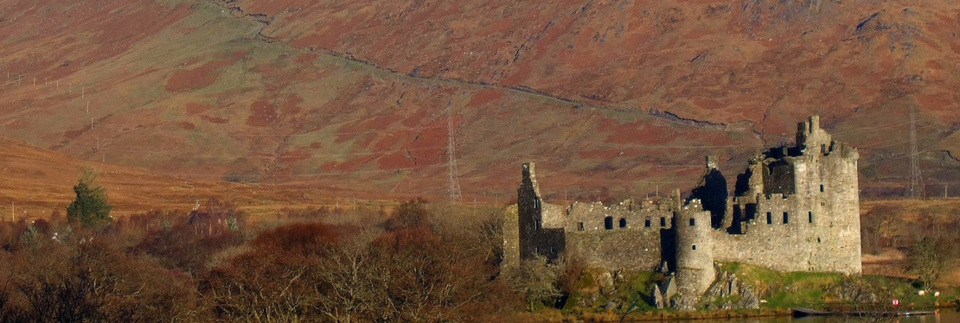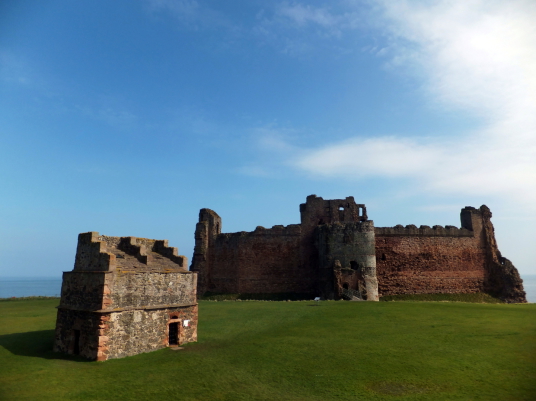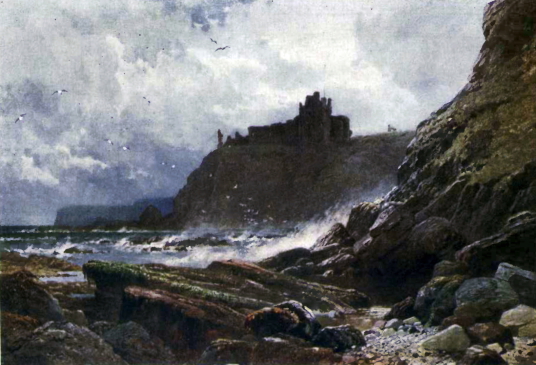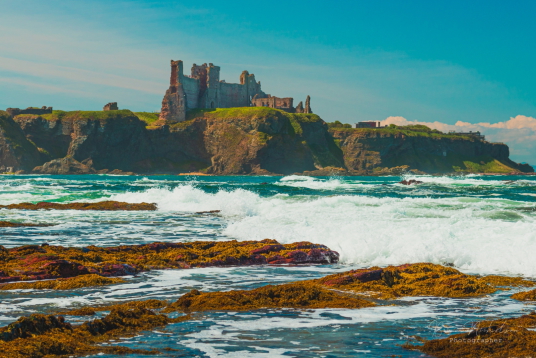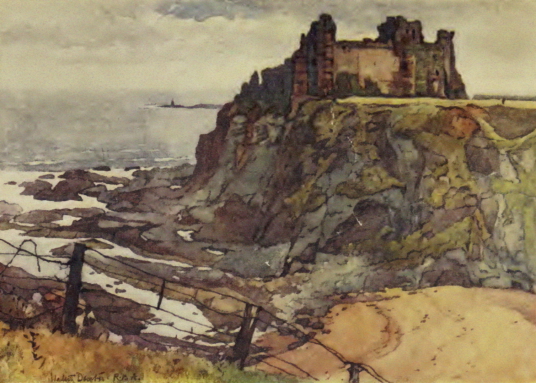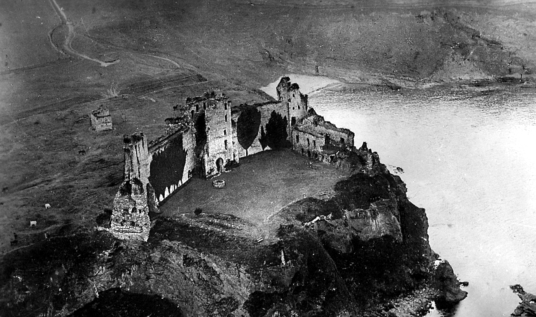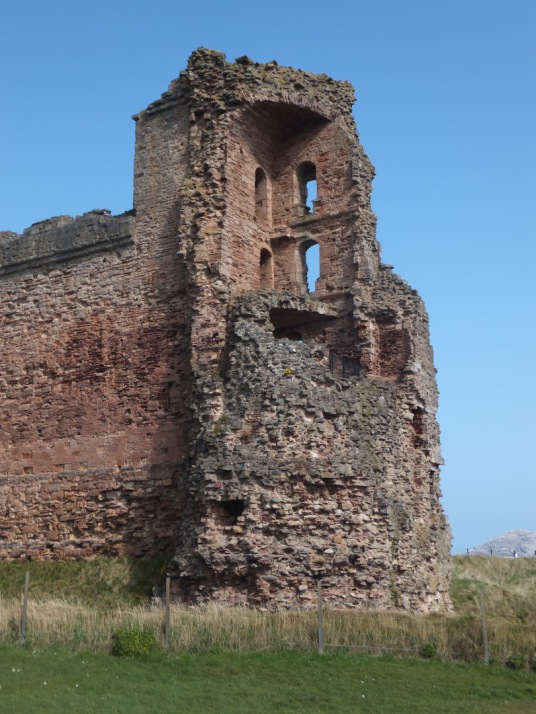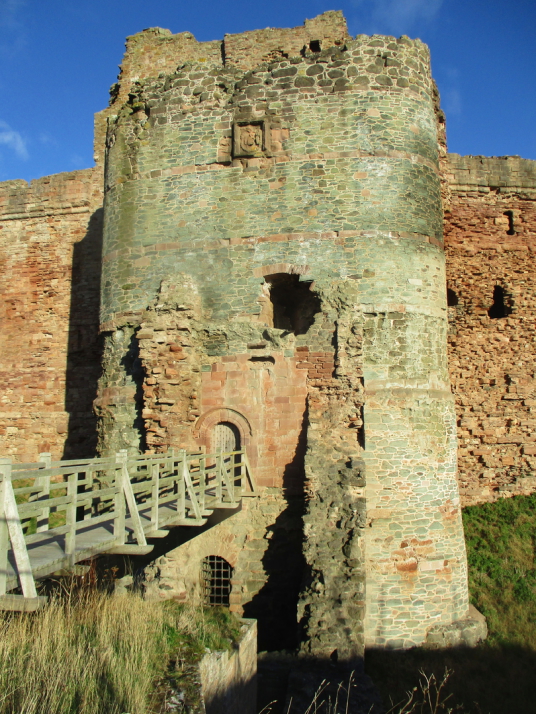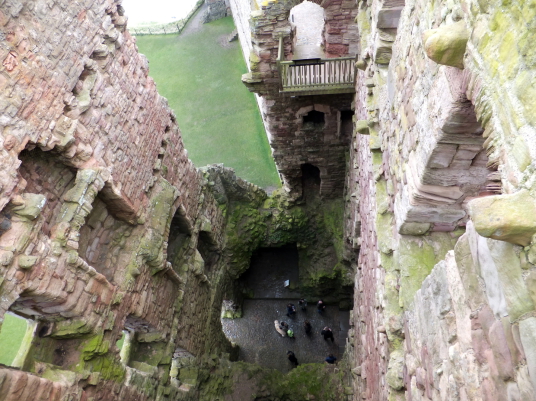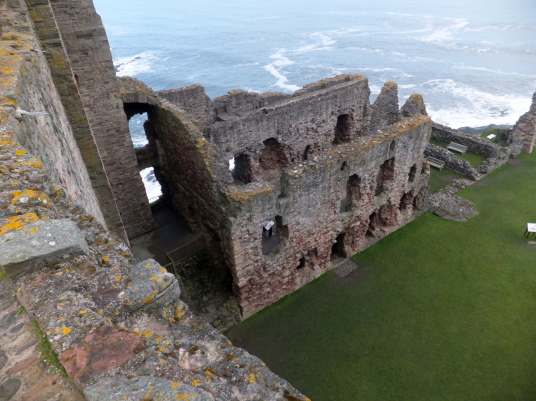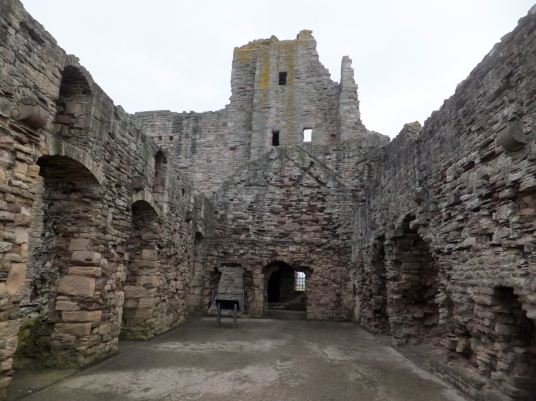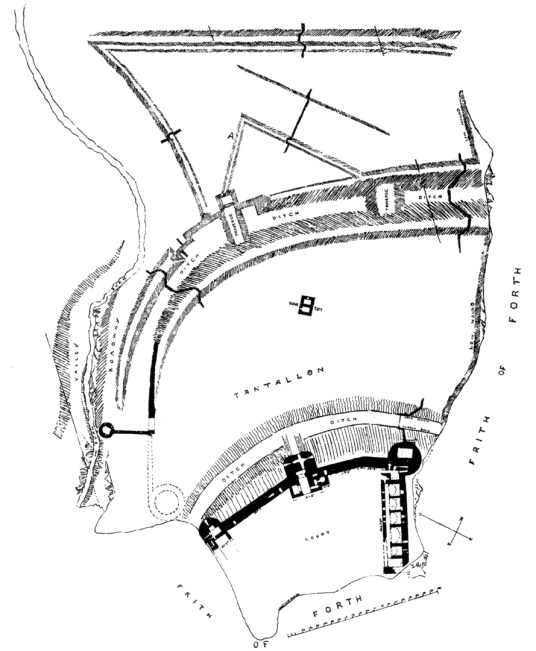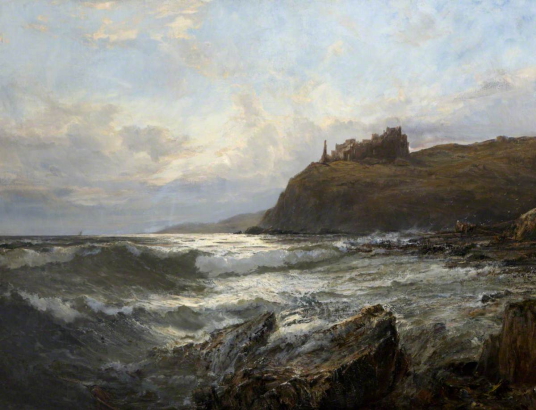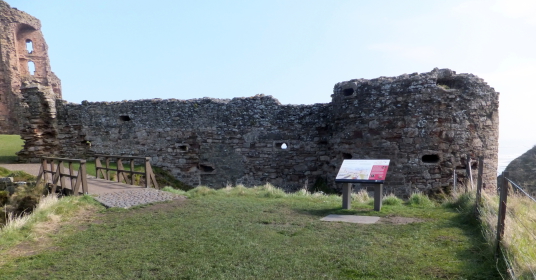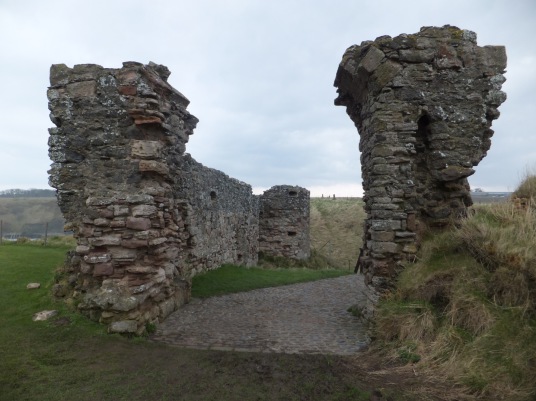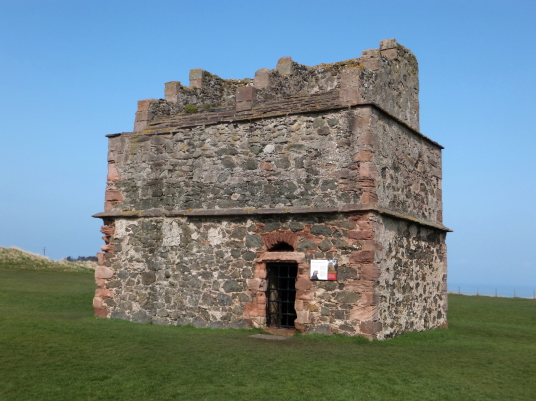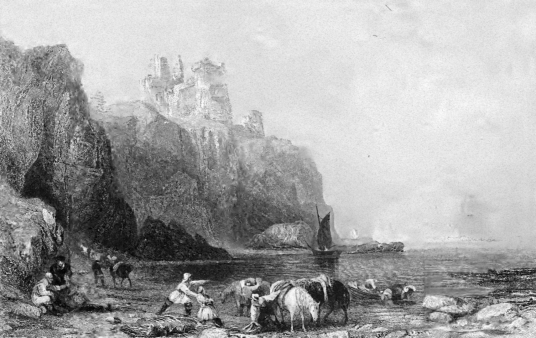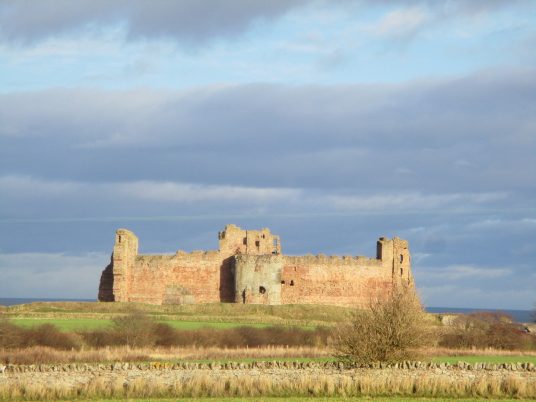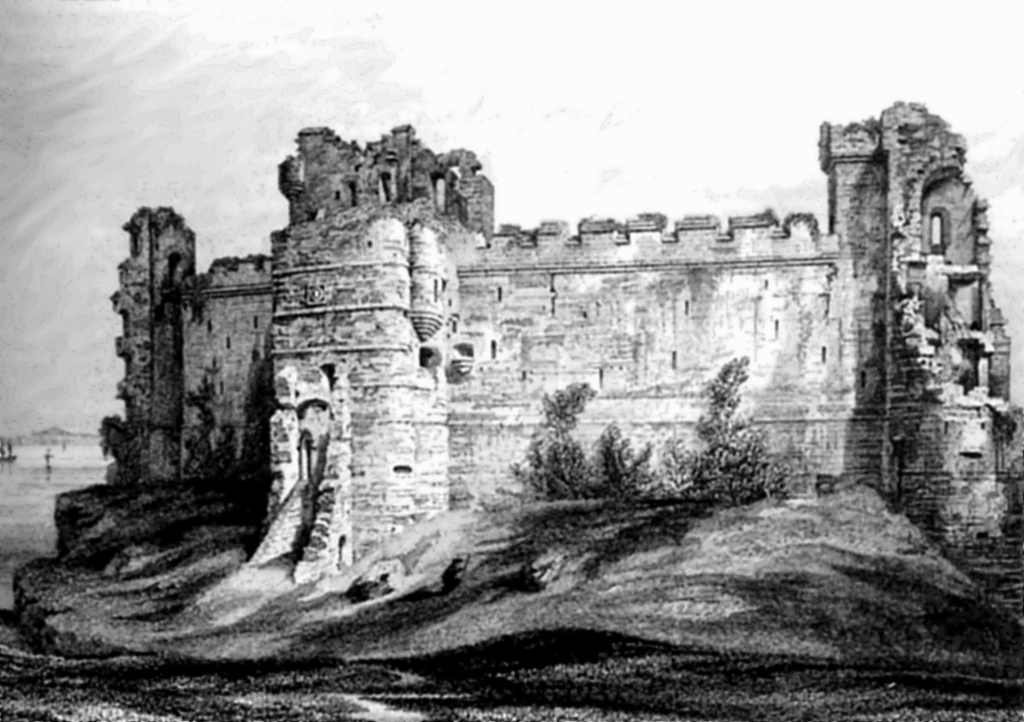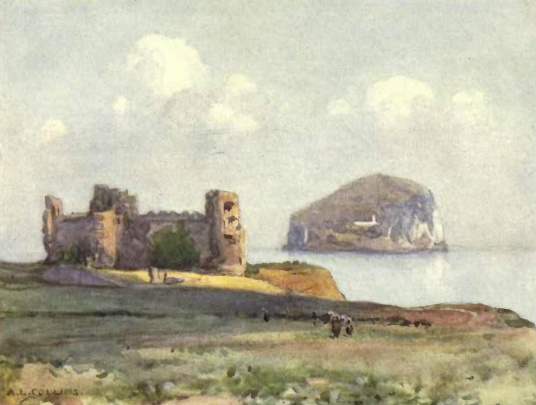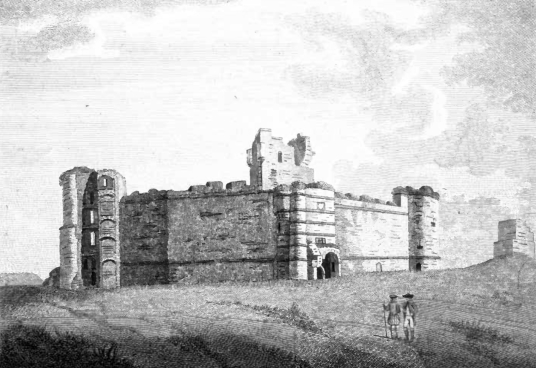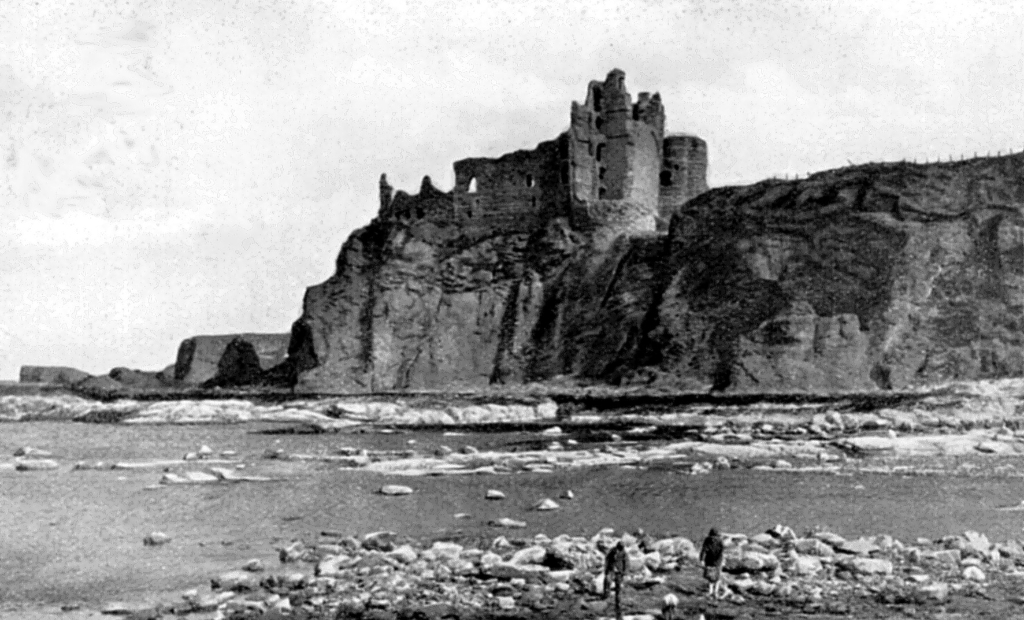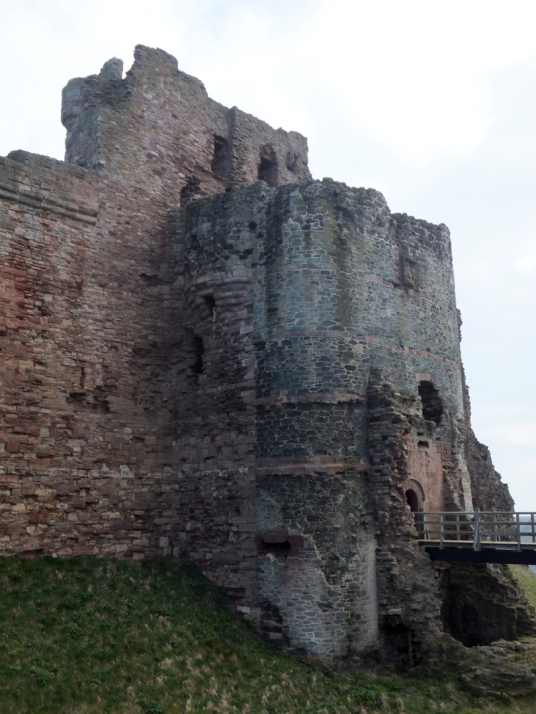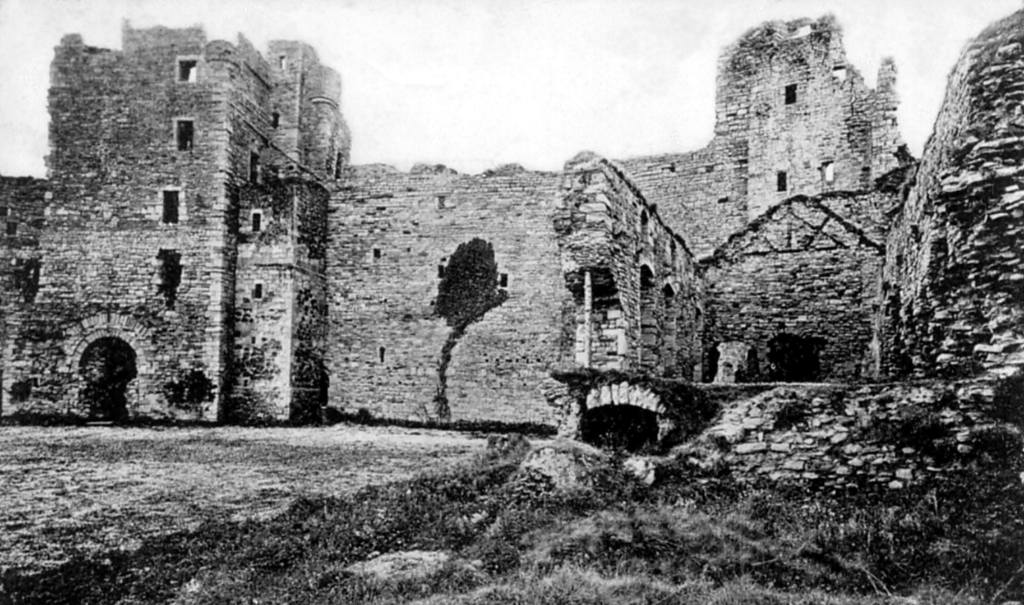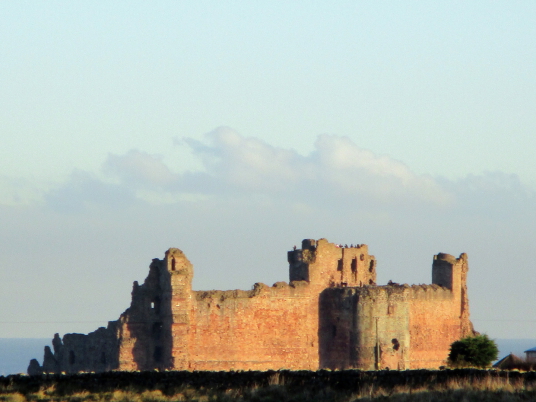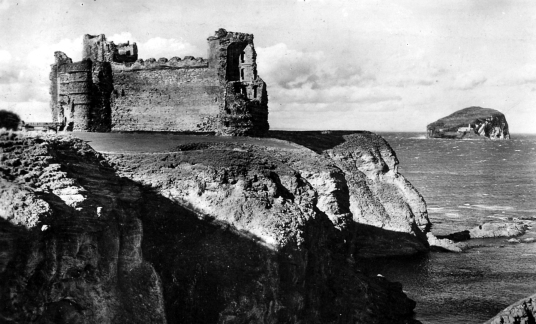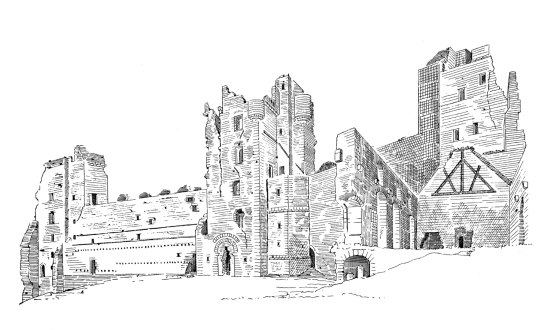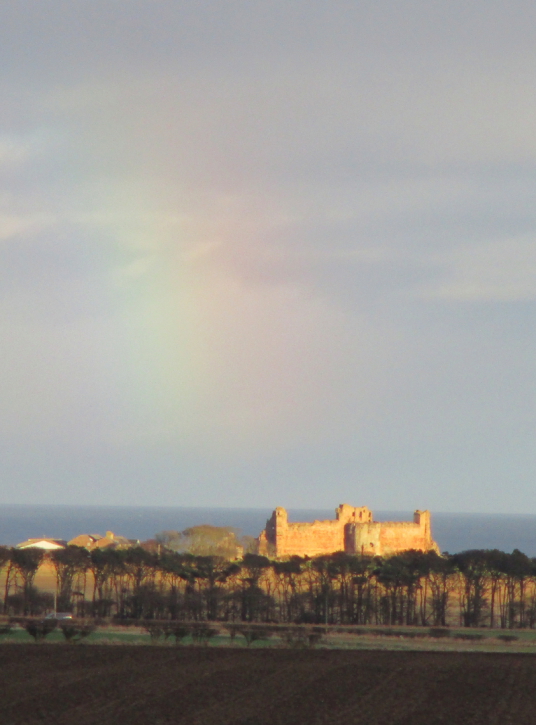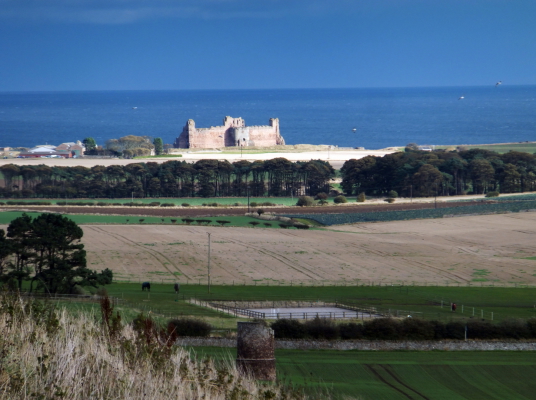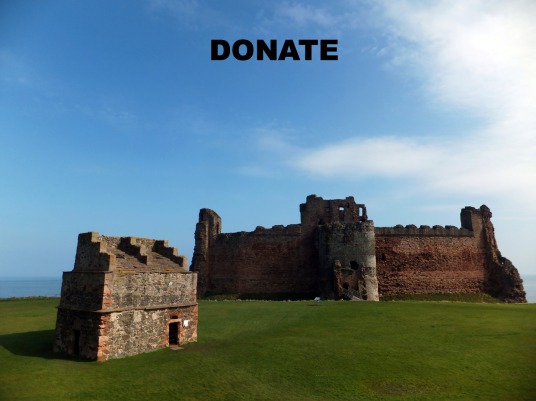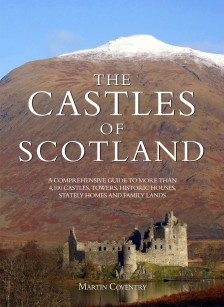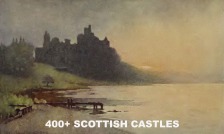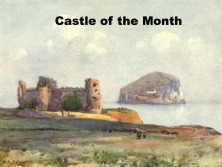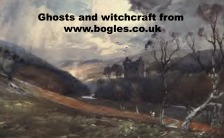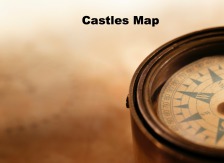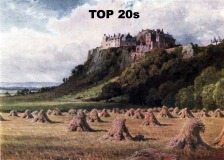Tantallon Castle
One of the most dramatic and imposing of Scottish strongholds, Tantallon Castle was the mighty fortress of the powerful Red Douglas Earls of Angus, cutting off a cliff-top promontory with a huge wall, massive towers and a deep ditch, but finally attacked and partially destroyed in a siege of 1651.
Lothians: About 3 miles east of North Berwick, north on minor road from A198, on cliffs on southern shore of Firth of Forth, at Tantallon Castle.
HES NT 596851 OS: 67 EH39 5PN
OPEN: Open Apr-Sep, daily 9.30-17.30; Oct-Mar, daily 10.00-16.00; last ticket sold 30 mins before closing; closed 25/26 Dec and 1/2 Jan. Sales area.
Tel: 01620 892727 Web: www.historicenvironment.scot
Checked 05/04/18
Colour photo as captioned by © Brian Nicholson (instagram @cyclingbrian68)
One of the most impressive castles in southern Scotland, Tantallon Castle is a large and once strong 14th-century courtyard castle. It consists of a massively thick 50 foot high curtain wall, blocking off a steep coastal promontory, the sea and the height of the cliffs defending the three other sides.
In front of the wall is a deep ditch, and at each end are ruined towers which had much of the accommodation for the castle: one round and formely grand, known as the Douglas Tower, one D-shaped. There are excellent views from the battlements. The Douglas Tower is very ruinous, but below it survives a vaulted prison, with a stair up to a cludge.
The shell of a massive keep-gatehouse stands at the middle of the wall, and rises to six storeys. Within the castle walls are the remains of a range of buildings, which contained a hall, kitchen, brewhouse, cellars, and private chambers. There is also a deep well, and the foundations of a sea gate.
Further earthworks form the outer bailey, which has a small stone gatehouse, protected by a round tower and many gunloops, and a large lectern-style 17th-century doocot, probably dating from after the 1651 siege. A ravelin, a triangular artillery earthwork, was constructed beyond the outer bailey, and there was a large settlement outside the walls at the castleton.
‘Tontallon cast.’ is marked on Blaeu’s map of The Lothians, and the castle is marked as ‘Tontallon’ on Adair’s map of East Lothian and is depicted as a substantial building.
The castle was built by William Douglas, 1st Earl of Douglas, in about 1350. William waylaid and slew his godfather, another William Douglas, the infamous ‘Knight of Liddesdale’, and secured his position as the most powerful lord in the Borders. Also see Douglas Castle.
George Douglas, his son, became the 1st Earl of Angus, the first of the ‘Red Douglases’, and married Mary, second daughter of Robert II. He was captured at the Battle of Homildon Hill in 1402, and died the next year. James, the 3rd Earl, used Tantallon to pursue a vendetta against the rival branch of the family the ‘Black Douglases’, whose main stronghold was Threave Castle. His brother, George, later 4th Earl, and James II’s army routed Black Douglas forces at Arkinholm in 1455, and he was rewarded with the lordship of Douglas. He died in 1463.
Archibald, the 5th Earl, known as Bell-the-Cat, hanged James III’s favourites, including Robert Cochrane, from the bridge at Lauder. He entered into a treasonable pact with Henry VII of England, which led to James IV besieging Tantallon in 1491. Archibald died in 1513, and his two sons were killed at the Battle of Flodden that same year, along with James IV and many nobles and men.
His grandson, another Archibald, succeeded as the 6th Earl of Angus. In 1514 he married Margaret Tudor, widow of James IV and sister of Henry VIII. In 1528, after many dubious ventures, Archibald had to flee to Tantallon, and James V besieged the castle with artillery. After 20 days, the king was forced to abandon the attack. Douglas retired to England, and the castle passed into the hands of the king.
When James V died in 1542, Angus returned, and again took possession of Tantallon. By 1543 England and Scotland were at war, and Archibald offered to surrender the castle to the English. However, during the invasion, the English desecrated the Douglas tombs at Melrose Abbey, and Archibald changed sides and led the Scots to victory at the Battle of Ancrum Moor in 1545. He also led the Scots, along with the Earl of Hamilton, to defeat at the much more decisive Battle of Pinkie in 1547.
Cannons at Tantallon took part in a naval battle between an English and French fleet. Archibald died at the castle in 1556.
Mary, Queen of Scots, visited in 1566. Archibald, 8th Earl, entered into more treasonable negotiations with the English, and had to go into exile in 1581. He died in England in 1588, as a result – it was said – of a spell cast by Agnes Sampson, who was later condemned as a witch by James VI and burnt. William, 9th Earl, died in 1591, and the 10th Earl, another William, was a staunch Catholic, who was also forced into exile to die in France in 1611. His son, again William, 11th Earl also became Marquis of Douglas. Tantallon was seized by Covenanters in 1639.
In 1650 mosstroopers, based at the castle along with Dirleton and Innerwick, did so much damage to Cromwell’s lines of communication that in 1651 he sent a large army with ordinance to attack the castle. The bombardment lasted 12 days and destroyed so much of the castle that the garrison surrendered after severe damage to the two end towers. Unusually, especially for Cromwell, the garrison was given quarter.
The castle was soon abandoned as a fortress and residence, and in 1699 the property was sold, along with the Barony of North Berwick, to the Dalrymples of Stair.
Tantallon Castle was used as a location for the 2013 sci-fi movie Under the Skin with Scarlett Johansson, and for the 1998 Bollywood film Kuch Kuch Hota Hai, a very successful romantic comedy. Some scenes from Outlaw King (2018), and Mary Queen of Scots (2019) with Saoirse Ronan and Margot Robbie, have the castle site as a backdrop seen from the shore, although it has been digitally altered…
There are some stories the castle is haunted, and young people who had been paying an ‘out of hours’ visit to Tantallon were scared away by a figure walking along the battlements. An interesting photo was taken into the gatehouse, looking up towards an old doorway. This has been interpreted as an apparition, perhaps in a ruff, and got much coverage in the press, although it may just be a corporeal visitor.
